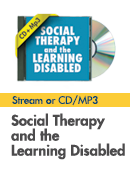Clinical Interviews
The most evidence based
clinical success for
social anxiety since 1978.
Treatment Available Worldwide
Self-Help Programs









Ask Jonathan Questions
Could social anxiety be hereditary?
Life is passing me by due to social and performance anxiety. Can you help?
Is there such a thing as a loner who needs very minimal social interactions?
Amy Lemley, 46, has spent most of her life feeling like a fraud. She remembers debilitating performance pressure even as a young child. When she believed she wasn’t strong in a subject, such as science or math, she’d avoid it, once refusing to do homework for months.
Later, as a marketing copywriter, Lemley felt her anxieties surfacing again. She began worrying obsessively about how she came off to coworkers and clients. Was she being taken seriously? Did that person think she knew what she was talking about? A few times she forgot to bill her clients, and when she realized the mistake, was too embarrassed to send the bill late.
Matt, an account executive at a major global public relations firm, had the ambition to rise to the top and the smarts to get there. But when he had to open his mouth at work, panic set in.
“For something as simple as speaking up in a meeting, my face would turn red,” says Matt, who’s in his early 30s (and asked to be identified by first name only).
“I heard people say once that I was afraid of my own shadow,” he says. “In my profession people exude confidence, and that was not me.”
Participating in a meeting, going on a job interview or even asking for a raise is no big deal for many workers. But for those who are shy – or, in clinical terms, suffer from social anxiety – even everyday workplace interactions can be terrifying.
The result can be smart, capable and ambitious people who stagnate in their careers because they avoid visibility.
Are you afraid to address a crowd? Do you get anxious over small talk in an elevator? You’re not alone.
“Talking in public is the No. 1 phobia in the world,” says Jonathan Berent, a licensed psychotherapist and co-author of the book “Work Makes me Nervous.” “A number of my patients say they would consider getting into an accident on the way to work to avoid speaking in public scenarios. One patient who was an ovarian cancer survivor said she’d rather go back to chemo.”
Berent says 20 percent of the general population has reported extreme discomfort in public speaking scenarios. And it’s not just large groups that cause the anxiety to kick into high gear. “It could be addressing someone in a board room or an informal business meeting. Two people or 300 — it can have the same results.”
One of the main causes of all this social anxiety, Berent has found, is our digital world.
“Technology is a wonderful thing, yet at the same time it has emphasized the need for productivity,” explains Berent. “People become overly dependent on technology for communication, yet when you are in a real time scenario, this requires a process of different neural pathways to get words out of your mouth. This is very different from the pathways that happen for using technology.”
And if you don’t keep exercising those ‘real time communication’ neural pathways, your body will have a reaction.
“The fear of being noticeably nervous, stammering or sweating, becomes a compulsion to many who suffer from this,” says Berent. “There’s a whole new medical industry where physicians cut your nerves to prevent blushing and sweating.”
The mental health community must increase its clinical acumen regarding complex psycho-pathology consisting of the avoidant personality, social impotence, and related rage. School violence has taken on epidemic proportions since two disturbed adolescents masterminded Columbine and became role models for the mentally ill young men who drive the new culture of school shootings.
While the profile of the school shooter has evolved over the last couple of decades, it’s worth considering the behavioral patterns and psychodynamics significantly present in school shootings. For the mental health profession to increase its clinical efficacy with this very at-risk group, this consideration is imperative. The following can hopefully provide insight into this pathological scourge. Read More
The mental health community must increase its clinical acumen regarding complex psycho-pathology consisting of the avoidant personality, social impotence, and related rage. School violence has taken on epidemic proportions since two disturbed adolescents masterminded Columbine and became role models for the mentally ill young men who drive the new culture of school shootings. Read More
I’ve had patients who say they understand why other kids shoot up schools [“Threats spike at LI schools,” News, April 2].
The mental health community must increase its clinical acumen regarding the complex psychopathology consisting of avoidant personality, social impotence and related rage if progress is going to be made to prevent school shootings… Read More
Berent Associates, 10 Bond St., #371, Great Neck, NY 11021
Tel: (516) 872-9383, Fax: (516) 487-7414, E-mail: jberent@socialanxiety.com
Privacy Statement: All information collected from this website, including E-mail addresses, mailing addresses and personal
information, will not be shared or sold. Any information collected through this site will be used by Berent Associates only.







